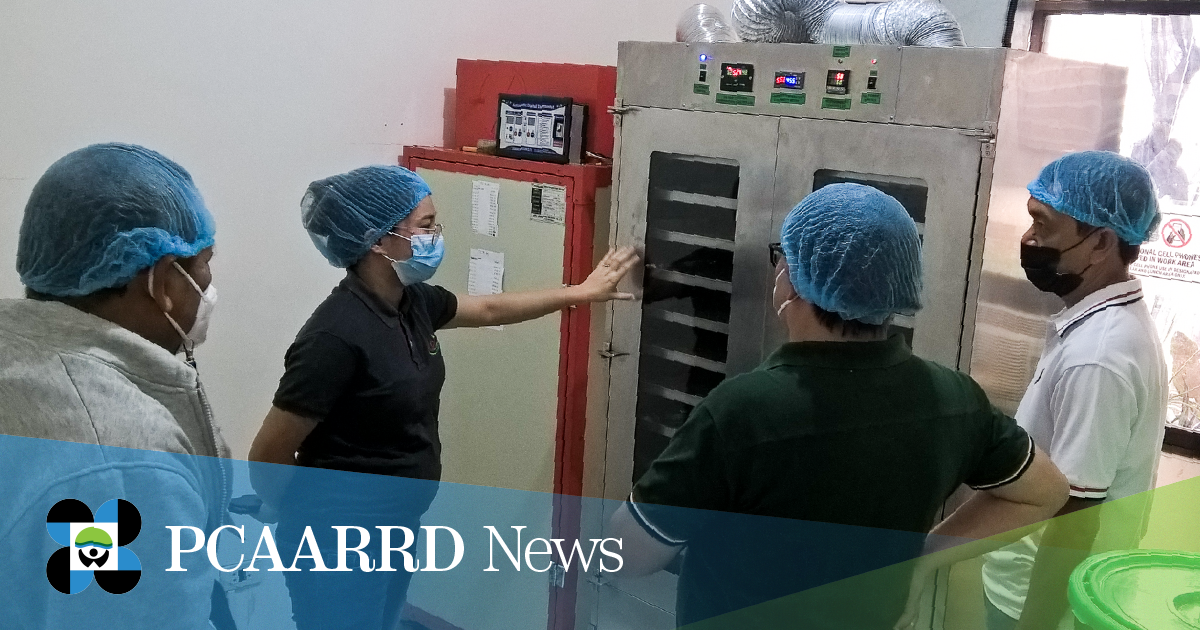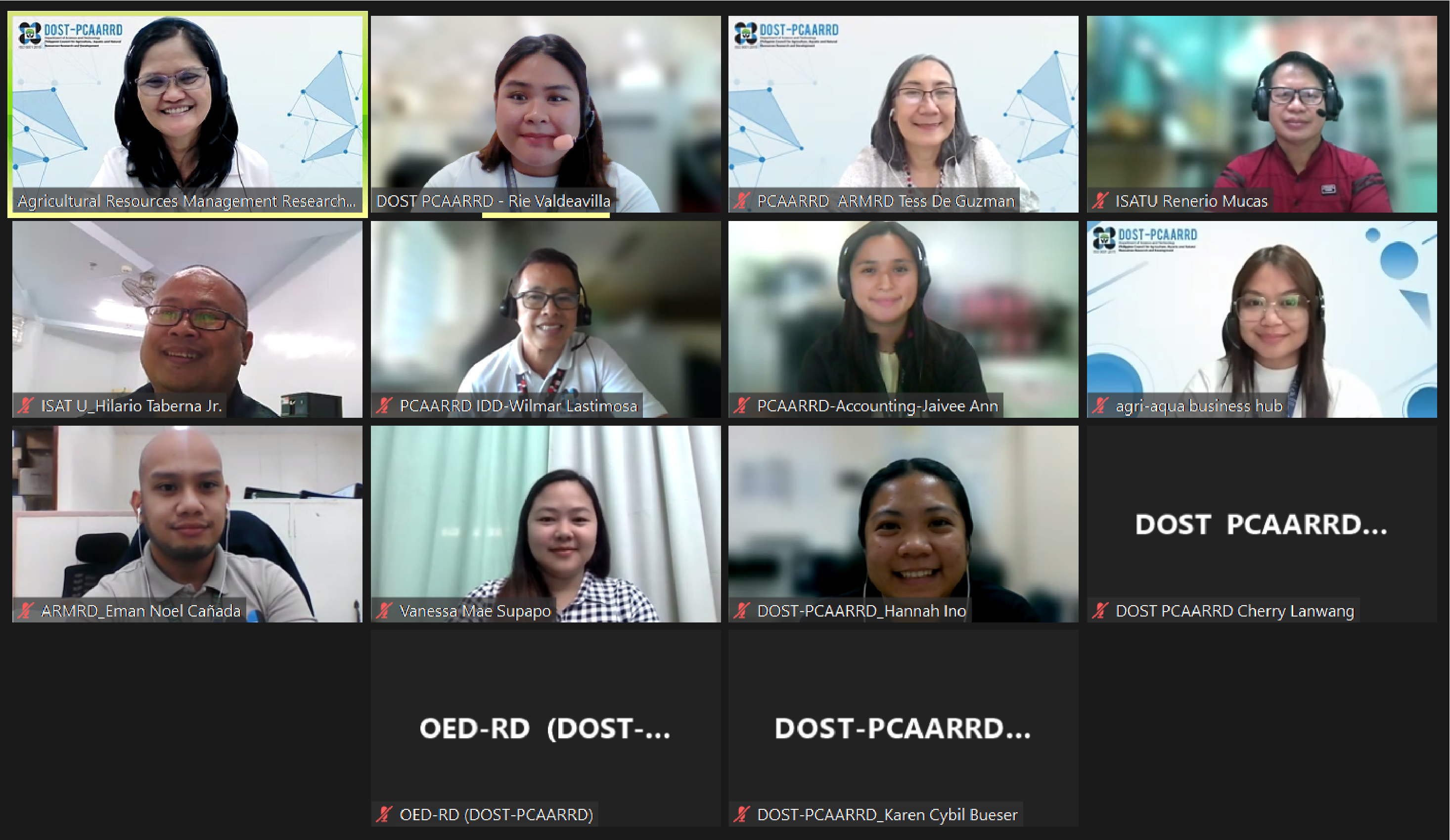
A locally-made hybrid dehydrator machine can assist the food processing industry, especially during the onset of the rainy season when drying of food products becomes restrictive. This innovative energy-efficient technology automates temperature control and ensures consistent quality dried products. It can be used for drying ginger, turmeric, banana, ‘lamayo’ fish, and other food products.
The hybrid dehydrator machine is one of the outputs of the research and development (R&D) project, "Pilot Testing of Hybrid Solar-Powered Dehydrator Machine for Processing Agri-Products," funded by the Philippine Council for Agriculture, Aquatic and Natural Resources Research and Development of the Department of Science and Technology (DOST-PCAARRD). This 2.5-year project of the Iloilo Science and Technology University (ISAT U) generated other significant findings.
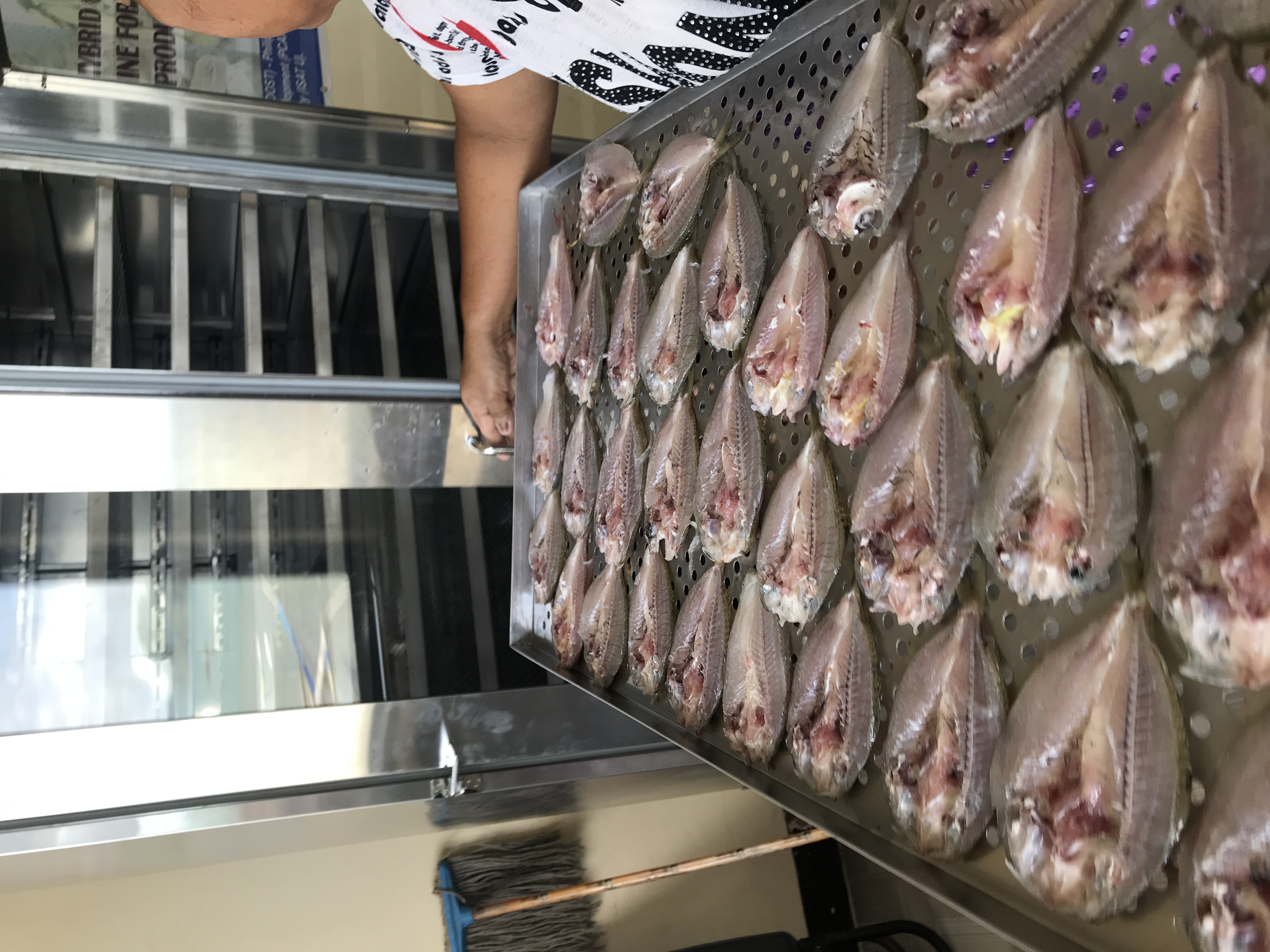
In a recent virtual project terminal review organized by DOST-PCAARRD’s Agricultural Resources Management Research Division (ARMRD), Project Leader Renerio S. Mucas highlighted the machine’s major features and performance. The dehydrator’s built-in calibrated monitoring system precisely regulates the humidity and temperature required for a specific food product. Solar energy powers the machine and is backed up by electric power to ensure continuity and stability in the drying process.
The project engaged food processing entities in Iloilo to further test and evaluate the performance of the dehydrator by installing the machine in their workstations. The first unit was installed at San Dionisio Public Market used by lamayo fish vendors. The second unit was installed at Brgy. Dabong in Janiuay, Iloilo was used by women volunteers in drying banana peel byproducts from banana chips processing. The third unit was installed at Al Di Foods Inc. in Magsaysay Village, La Paz for drying turmeric and ginger. A fourth unit was also installed at the Research Hub of ISAT U.
According to Dr. Mucas, Al Di Foods Inc., one of the project’s industry partners, expressed satisfaction with the performance of the dehydrator in their food manufacturing process, especially with its ability to preserve the color of ginger and turmeric products after drying.
“We have optimized the drying conditions for the products and kept improving the technology based on the feedback of our partners. Our dehydrator machine for drying lamayo fish demonstrated significant improvement in end-user evaluation after modifications, garnering an excellent overall rating of 4.69 higher compared with the initial satisfactory score of 3.34,” said Dr. Mucas.
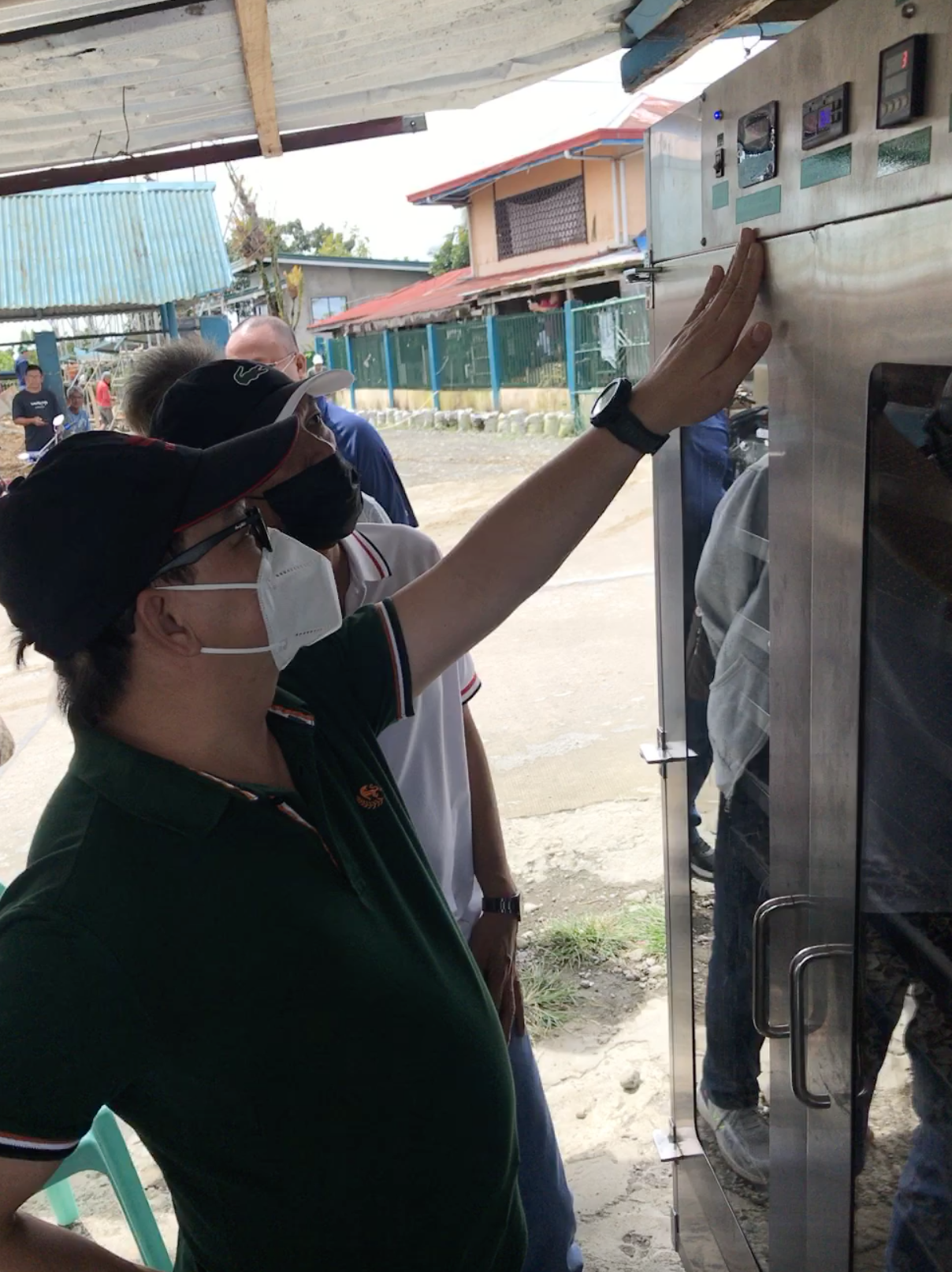
DOST-PCAARRD Deputy Executive Director for Research and Development Juanito T. Batalon looks at the control system of the solar-powered dehydrator machine at Brgy. Dabong, Janiuay, Iloilo. (Image credit: ARMRD, DOST-PCAARRD)
Aside from machine design, development, modification, and testing, Dr. Mucas reported his findings on the optimum conditions for drying to achieve the desirable quality of the product. Optimization results showed that each product requires different drying protocols. Drying 10 to 15 kilograms of lamayo fish for 2 hours at 50 degrees Celsius reduced the moisture content by 40% compared to the sun-dried fish available in the wet market.
For ginger and turmeric, the 70-degree Celsius drying temperature for 8 hours is optimal to achieve the minimum moisture content, total color change, maximized flavonoid, Vitamin C, and phenolic contents. For banana peels, the best conditions are 40-degree Celsius drying temperature, pre-treatment, and cube-sized slices to achieve optimal moisture content, phenolic content, Vitamin C content, and whiteness index.
The project terminal review was attended by the DOST-PCAARRD’s ARMRD monitoring and review team, Technology Transfer and Promotion Division, Socio-Economics Research Division, Institution Development Division, Finance Administration Division, and external evaluator Dr. Jesse Elauria. They have commended the project team for the successful pilot testing of the hybrid dehydrator.
Since preliminary evaluations also indicate the technology's financial and economic viability, the review panel recommended refining the financial projections to prepare for potential commercialization activities. The introduction of the technology in last year’s National Science and Technology Week in Iloilo garnered interest from various small-scale businesses and academic institutions.
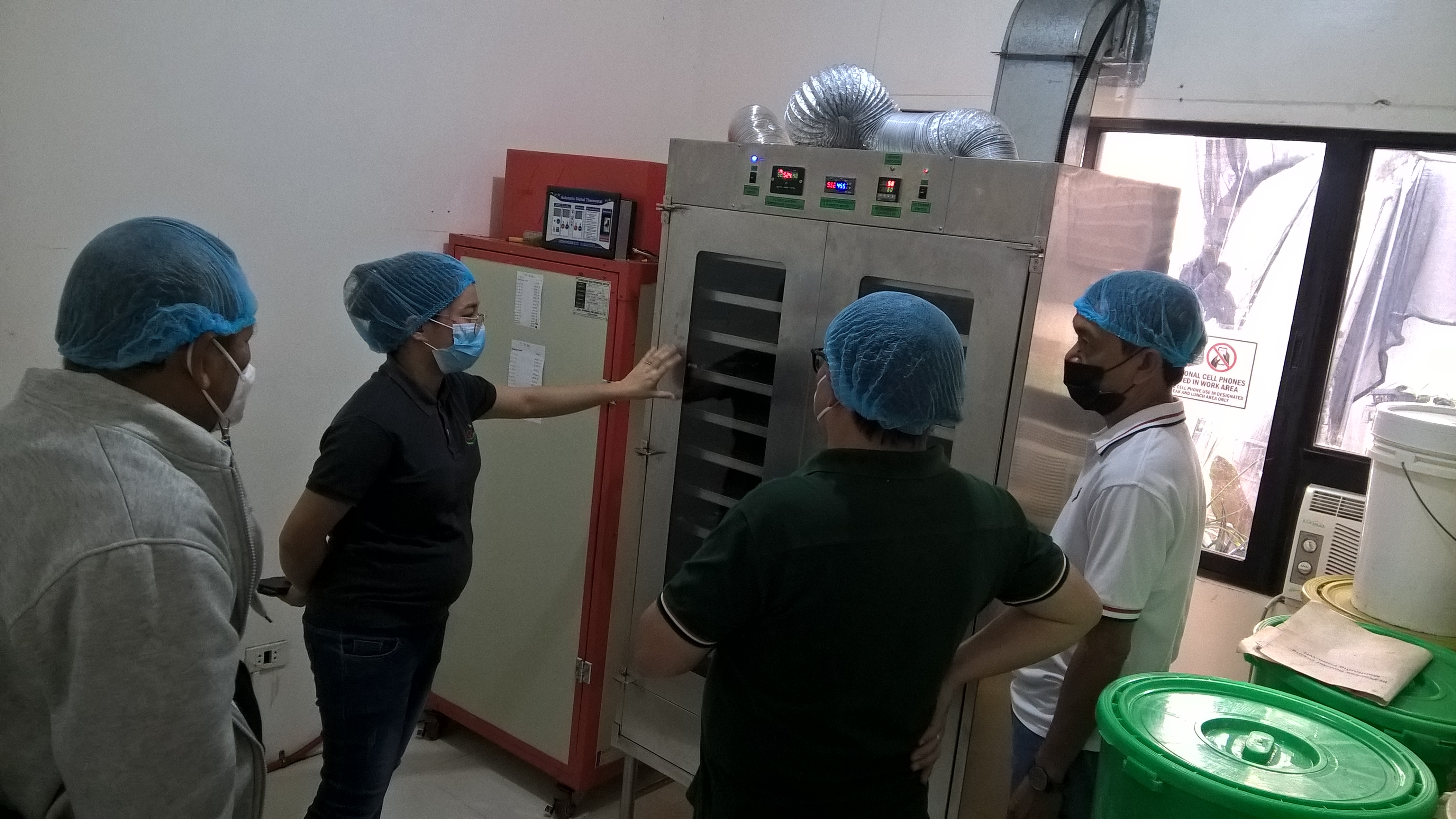
Solar-powered dehydrator machine at Al Di Foods Inc., La Paz, Iloilo City. (From left to right: DOST-PCAARRD External Evaluator Jessie C. Elauria; Al Di Foods Inc. Operations Manager; DOST-PCAARRD Deputy Executive Director for Research and Development Juanito T. Batalon; and DOST-PCAARRD TTPD Director Noel Catibog). (Image credit: ARMRD, DOST-PCAARRD)
ISAT U has already accredited a manufacturer in Manila for the dehydrator machine. As of 2023, more than 20 units have already been produced and distributed in Antique, Occidental Mindoro, and Iloilo. Interested parties may contact Dr. Renerio S. Mucas at

